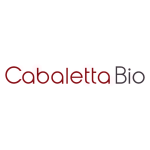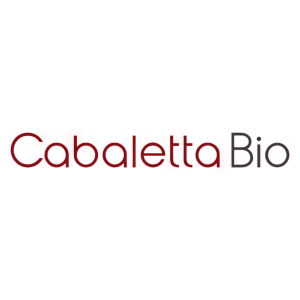Welcome to our dedicated page for Cabaletta Bio news (Ticker: CABA), a resource for investors and traders seeking the latest updates and insights on Cabaletta Bio stock.
Cabaletta Bio, Inc. (Nasdaq: CABA) is a clinical-stage biotechnology company developing targeted cell therapies for autoimmune diseases, with news flow closely tied to its lead investigational CAR T cell therapy, rese-cel (resecabtagene autoleucel). The company regularly issues updates on clinical data, regulatory interactions, manufacturing progress and corporate developments that are relevant to investors and followers of autoimmune-focused biotechnology.
News about Cabaletta Bio often highlights clinical milestones within its RESET™ (REstoring SElf-Tolerance) development program. These updates include Phase 1/2 data readouts and trial expansions in indications such as myositis, systemic sclerosis, systemic lupus erythematosus, lupus nephritis, generalized myasthenia gravis and pemphigus vulgaris. Press releases have described outcomes from disease-specific cohorts, registrational cohort designs aligned with the U.S. Food and Drug Administration, and emerging data from cohorts evaluating rese-cel without preconditioning regimens.
Regulatory and manufacturing news is another key theme. Cabaletta Bio has reported on FDA designations for rese-cel, including Regenerative Medicine Advanced Therapy and Fast Track designations, as well as PRIME access from the European Medicines Agency. The company also issues announcements regarding chemistry, manufacturing and controls activities and its collaboration with Cellares to use fully automated platforms, such as the Cell Shuttle™ and Cell Q™, for clinical manufacturing and quality control testing of rese-cel.
Corporate and financial updates, including quarterly financial results, public offerings and participation in healthcare and investor conferences, are frequent components of Cabaletta Bio’s news flow. These communications provide context on the company’s cash position, operating plans and engagement with the investment community. For readers tracking CABA, the news stream offers insight into the progress of rese-cel across multiple autoimmune indications, evolving registrational strategies and the company’s preparations for potential future commercialization. Bookmarking the news feed can help users follow ongoing clinical, regulatory and corporate developments related to Cabaletta Bio and its RESET program.
Cabaletta Bio (Nasdaq: CABA) will participate in a fireside chat at the Guggenheim Emerging Outlook: Biotech Summit 2026 on Thursday, February 12, 2026 at 9:30 a.m. ET in New York. A live webcast will be available on the company website and replays will be posted for 30 days.
Cabaletta Bio (Nasdaq: CABA) outlined 2026 priorities to advance rese-cel development, regulatory alignment, and scalable automated manufacturing.
Key plans: an FDA-aligned 17-patient myositis registrational cohort supporting a planned 2027 BLA submission; RMAT designation for systemic sclerosis; registrational cohort designs in SLE and LN (~25 patients each); IND amendment cleared to manufacture rese-cel using the Cellares automated platform with clinical manufacturing data expected in 1H26; and multiple Phase 1/2 data readouts across RESET trials expected in 1H26, including durability and no-preconditioning dose-ranging results.
Cabaletta Bio (Nasdaq: CABA) received FDA clearance of an IND Amendment to manufacture its investigational CAR T therapy rese-cel using Cellares' automated Cell Shuttle™ and Cell Q™ platforms. The clearance enables clinical manufacturing and QC release on Cellares' end-to-end automated systems, marking the platforms' first use supporting an active clinical program. First patient dosing is anticipated in the first half of 2026. Cabaletta and Cellares presented split apheresis comparability data and completed multi-batch engineering runs to support the transition to automated GMP production.
Cabaletta Bio (Nasdaq: CABA) reported Q3 2025 results and a business update on Nov 10, 2025. Key operational points: rese-cel clinical data from 32 patients across four autoimmune trials showed drug-free responses and a favorable safety profile supporting outpatient use. All myositis Phase 1/2 patients with sufficient follow-up who met registrational criteria achieved the 16-week primary endpoint. A 14-patient DM/ASyS registrational cohort will begin enrolling this quarter, supporting a planned BLA submission in 2027. Regulatory progress includes EMA PRIME and FDA RMAT and Fast Track designations. Financials: R&D expense rose to $39.8M in Q3; cash and investments were $159.9M, funding operations into H2 2026.
Cabaletta Bio (Nasdaq: CABA) announced participation in five investor conferences in November–December 2025 with scheduled webcasted fireside chats and investor meetings.
Key dates and times: Guggenheim fireside chat on Nov 11, 2025 at 10:30 a.m. ET; TD Cowen on Nov 13, 2025 at 11:00 a.m. ET; Jefferies (London) on Nov 17, 2025 at 1:30 p.m. GMT (meetings Nov 17–18); Evercore on Dec 2, 2025 at 8:20 a.m. ET; and Citi on Dec 3, 2025 at 1:45 p.m. ET.
All webcasted fireside chats will be available on the company's News and Events website page and replays will be posted for 30 days. The company will be available for in-person and virtual investor meetings as noted per event.
Cabaletta Bio (Nasdaq: CABA) reported positive clinical and development updates for rese-cel across RESET-Myositis, RESET-SSc and RESET-SLE at ACR Convergence 2025 (data cut-off Sept 11, 2025).
Key points: all 4 DM/ASyS patients meeting registrational criteria achieved moderate/major TIS at week 16; Cabaletta plans a 14-patient DM/ASyS registrational cohort with a 16-week primary endpoint; 76 patients enrolled at 77 sites as of Oct 24, 2025; SSc and SLE cohorts showed clinical responses off immunomodulators; a no-preconditioning dose-escalation cohort for SLE is being added with initial data expected in 2026.
Cabaletta Bio (Nasdaq: CABA) appointed Steve Gavel as Chief Commercial Officer effective Oct 14, 2025, to lead global commercial strategy and execution for rese-cel (resecabtagene autoleucel) and future pipeline opportunities. The company anticipates a first BLA submission in myositis in 2027. Gavel previously led CAR T launch and commercialization at Legend Biotech (2018–2025) including CARVYKTI, and has prior roles at Celgene, Takeda and Johnson & Johnson.
On Oct 13, 2025 Cabaletta granted an inducement award of 275,000 non-qualified stock options at an exercise price of $2.49 (Nasdaq close Oct 13), 10-year term, vesting over four years under the 2025 Inducement Plan.
Cabaletta Bio (NASDAQ: CABA) presented initial data from the RESET-PV trial showing rese-cel administered at 1x10^6 cells/kg without preconditioning in three evaluable pemphigus vulgaris patients (data cut-off Sept 11, 2025).
Key findings: complete peripheral B cell depletion in 2 of 3 patients, CAR T expansion comparable to preconditioned trials, rapid reductions in desmoglein autoantibodies, meaningful PDAI score improvements (examples: 83→3 and 22→2), and no reported ICANS. All three patients remained off immunomodulators at cut-off.
Cabaletta Bio (Nasdaq: CABA), a clinical-stage biotech company developing curative targeted cell therapies for autoimmune diseases, has announced its participation in four major investor conferences in September 2025.
The company will present at the Cantor Global Healthcare Conference (Sept 3), Wells Fargo Healthcare Conference (Sept 4), Morgan Stanley Global Healthcare Conference (Sept 10), and H.C. Wainwright Global Investment Conference (Sept 10). Webcasted fireside chats will be available on the company's website for 30 days.
Cabaletta Bio (Nasdaq: CABA) reported significant progress in Q2 2025, highlighting advancements in their rese-cel (resecabtagene autoleucel) development program. The company is on track to initiate registrational cohort enrollment for myositis treatment in 2H 2025, targeting a BLA submission in 2027.
Key developments include successful enrollment across five disease-specific cohorts from over 70 clinical sites, promising clinical data presented at EULAR 2025 Congress, and completion of a $100 million public offering extending cash runway into 2H 2026. The company reported Q2 2025 R&D expenses of $37.6 million and ended the quarter with $194.7 million in cash and equivalents.


